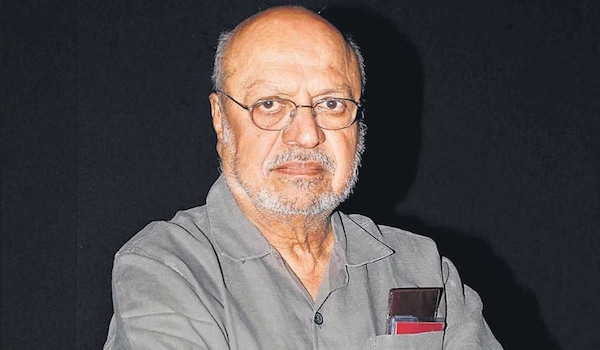Veteran filmmaker Shyam Benegal passes away at 90
Renowned director Shyam Benegal, a trailblazer in Indian cinema, has passed away.

Last Updated: 08.20 PM, Dec 23, 2024
Shyam Benegal, the veteran filmmaker, breathed his last at Wockhardt Hospital in Mumbai on Monday, December 23, 2024, at the age of 90.
Confirmation of Shyam Benegal's death
His daughter, who spoke with Mid-day, confirmed that he passed away this evening. He had been suffering from a kidney disease for some time. Pia Benegal, the filmmaker's daughter, told the tabloid Mr. Shyam Benegal passed away today at 6:38 pm at a city hospital. He had been sick for a while.
Pioneer of parallel cinema
Many people consider Shyam Benegal to be the first person to create parallel cinema. From the 1970s on, he gained widespread recognition as one of today's best filmmakers. Among his many honours are 18 National Film Awards.
In 2005, Benegal received India's most prestigious cinematic accolade, the Dadasaheb Phalke Award. In 1976, the Indian government bestowed upon him the Padma Shri, the nation's fourth-highest civilian accolade. For his artistic achievements, he received the Padma Bhushan, the third-highest civilian distinction, in 1991.
Ankur was funded independently in 1973. His native Telangana was the setting for a realistic drama about sexual and economic exploitation. The 1975 National Film Award for Second Best Feature Film honoured Benegal, introducing stars Shabana Azmi and Anant Nag. The National Film Awards recognised Shabana as the Best Actress.
Mentor to industry icons
Beyond his creative achievements, Benegal was a mentor to many in the industry, nurturing talents like Shabana Azmi, Om Puri, Naseeruddin Shah, and Smita Patil, who went on to become icons in their own right.
With a career spanning over five decades, he directed critically acclaimed films such as Ankur (1974), Nishant (1975), Manthan (1976), and Bhumika (1977). These films, celebrated for their nuanced storytelling and social commentary, earned him a dedicated following both in India and internationally.
Contributions to television
Benegal's impact on Indian cinema extended beyond just films. He also made significant strides in television, creating beloved series like Bharat Ek Khoj, an adaptation of Jawaharlal Nehru’s The Discovery of India, which remains a landmark in Indian television history.

 Premium
Premium